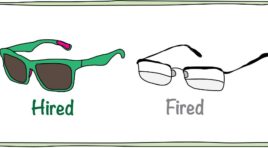Right before Christmas when things were crazy and no one was paying attention, something happened in the HR Tech world that didn’t get much press. This happens at certain times. It’s why corporations, governments, etc. release bad news on Fridays at 5 pm. It gets buried during the weekend.
The thing that happened was the announcement that many companies (Amazon, Verizon, UPS, and even Facebook themselves) were using Facebook Ads to exclude older people from applying for their jobs! That’s big news, right!?
If these same companies were using the exact same technology to exclude females or African Americans, don’t you think the world would have stopped, if only for a second until Trump tweeted again!? I think it would have, but it didn’t.
From the article:
A few weeks ago, Verizon placed an ad on Facebook to recruit applicants for a unit focused on financial planning and analysis. The ad showed a smiling, millennial-aged woman seated at a computer and promised that new hires could look forward to a rewarding career in which they would be “more than just a number.”
Some relevant numbers were not immediately evident. The promotion was set to run on the Facebook feeds of users 25 to 36 years old who lived in the nation’s capital, or had recently visited there, and had demonstrated an interest in finance. For a vast majority of the hundreds of millions of people who check Facebook every day, the ad did not exist.
Verizon is among dozens of the nation’s leading employers — including Amazon, Goldman Sachs, Target and Facebook itself — that placed recruitment ads limited to particular age groups, an investigation by ProPublica and The New York Times has found.
The ability of advertisers to deliver their message to the precise audience most likely to respond is the cornerstone of Facebook’s business model. But using the system to expose job opportunities only to certain age groups has raised concerns about fairness to older workers.
So, is this right? Well, Facebook seems to think so:
Facebook defended the practice. “Used responsibly, age-based targeting for employment purposes is an accepted industry practice and for good reason: it helps employers recruit and people of all ages find work,” said Rob Goldman, a Facebook vice president.
“Age-based targeting for employment purposes is an accepted industry standard”. Really!? Well, in one way it is. But only if you’re doing it for good, not evil! If you are out trying to specifically recruit older people because you lack an older population in your workforce, then “yes” that is accepted.
If you don’t want older people, because they don’t fit your culture, then “HELL NO” it’s not an accepted standard!
The holidays came and went and all of this is forgotten because we don’t care about older workers. That’s a fact. We treat older workers like garbage in America. Once you reach 50 years old in America, you become stupid and worthless to hiring managers, even when those hiring managers are over 50!
We would have killed Facebook if they said it was an “industry standard to run ads for only white dudes”. But they are running ads for only young people and that is now an industry standard.
It’s not. It’s prejudice. It’s wrong. It is not an industry standard. Segmenting recruitment marketing is tricky. We have to be responsible enough to know when you exclude a certain group, that better not be an underrepresented group in your workforce and not the majority of your workforce (Facebook!).
So, what do you think? Industry accepted standard or bad recruitment marketing practice? Hit me in the commnets and let me know!

What I will be curious to see is if class action lawsuits are served. The only way to successfully change unfair hiring practices is through litigation because it costs large employers money